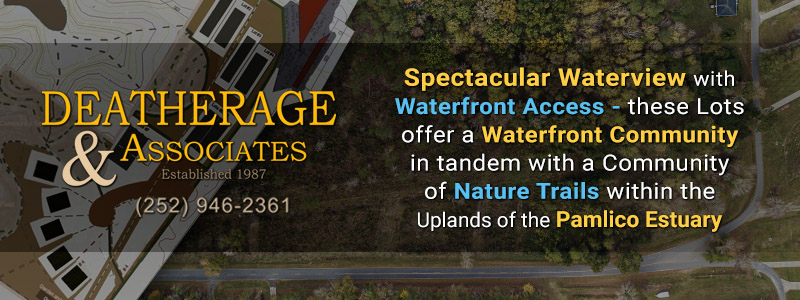Publisher's note: The author of this post is Barry Smith, who is an associate editor for the Carolina Journal, John Hood Publisher.
Crowell says same-day registration and early voting 'cancel out'
RALEIGH — An analysis by a UNC School of Government professor suggests there's no clear-cut answer over whether changes in laws regulating voter registration and extending the time people are allowed to vote have affected turnout in recent decades.
Michael Crowell, professor of public law and government at the School of Government, also hints that the effects of a couple of the changes enacted last year by the North Carolina General Assembly tend to wipe each other out. The changes Crowell mentioned were the early voting period, which was shortened by the General Assembly last year, and the elimination of same-day voter registration, which allowed unregistered state residents to register during the early voting period and cast ballots that same day.
"When done together, early voting and same-day registration neutralize each other," Crowell posted in a blog. "And, as one might expect, factors other than election laws have more to do with how many people vote."
Before last year's legislation passed the General Assembly, North Carolina voters could cast their ballots at one-stop sites 17 days before election day, with early voting ending on the Saturday before Election Day. The new law shrinks the early voting time period by one week, still allowing for 10 early voting days.
Crowell said that North Carolina data on elections seem to be consistent with a University of Wisconsin report showing that "early voting decreases voter turnout when implemented by itself."
He suggested two principal reasons for lower turnout. "It reduces the buzz around election day," Crowell said, noting that limiting the vote to a single date may increase social pressures on casual voters to "do their civic duty" and show up at the polls. Early voting periods reduce the urgency to cast ballots.
"Secondly, it affects how political campaigns operate," he said. Crowell relayed a recent conversation with a campaign consultant, who told him that he had a certain budget to spend on campaign advertising. If he waited to spend the money after the end of the early voting period, he would have missed much of his targeted audience.
The consultant "wasn't going to spend a lot of money right before Election Day, because half the people he's interested in reaching have already voted at that time," Crowell said.
Hans von Spakovsky, a senior legal fellow at the Heritage Institute, offered a similar theory explaining why early voting tends to decrease overall voter turnout, citing get-out-the-vote and marketing efforts by candidates.
"If [candidates] have to spread that effort out over weeks, if not a month or two, the intensity of that effort is diluted and not as effective," von Spakovsky said.
Von Spakovsky said the people who vote early are the same people who otherwise would vote on Election Day if they didn't have the early voting option.
Crowell agreed. "It may be that early voting, for the most part, simply makes it easier for people who would have gone to the polls anyway," he said.
Crowell noted that same-day registration does seem to increase voter turnout slightly. "It just seems to make logical sense, some people seen to wait till the last minute [to register]," Crowell said. He noted that about 100,000 people used same-day registration during early voting to register during two most recent presidential elections, in 2008 and 2012. That option ended with the 2013 legislation.
Crowell's review noted a number of changes to North Carolina's election laws over the past three-plus decades — allowing voter registration at driver's license offices, allowing political parties to invite unaffiliated voters into their primaries, registration by mail, no-excuse absentee voting, and online registration.
It also pointed out the obvious — turnout tends to be significantly higher during presidential election years than off years.
"Turnout increased in presidential years after 2000," Crowell wrote. "In 2004, turnout moved up to 54.9 percent of voting age population even though the Bush-Kerry contest was not close [in North Carolina]." Bush won North Carolina by 56 percent to 44 percent.
"Then in 2008, the turnout jumped to 62.9 percent as Obama defeated McCain by only 14,000 votes in North Carolina (49.7 percent to 49.4), and in 2012 it was still at 61.8 percent as Romney edged Obama (50.4 percent to 48.4)," Crowell wrote.
Crowell went on to discuss those two elections: "Were the increases simply the result of the dynamics of those two particular elections or did changes in the law have some effect? The explanation for those two elections may be Barack Obama."
An August 2013 column by John Locke Foundation President John Hood, written several weeks after the General Assembly passed the sweeping election law changes, suggested that people across the political spectrum shouldn't expect big voting changes.
Hood's analysis looked at a more-contentious part of the new election law, requiring voters to produce a state-approved identification document at the polls, along with some of the other changes.
Crowell's analysis didn't address the voter ID requirement.
While certain parts of the new law take effect with the 2014 elections — such as the end of same-day registration and a shorter early voting period — the photo ID requirement doesn't take effect until the 2016 elections.
Crowell's review can be found
here.























